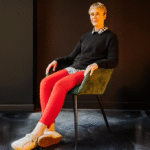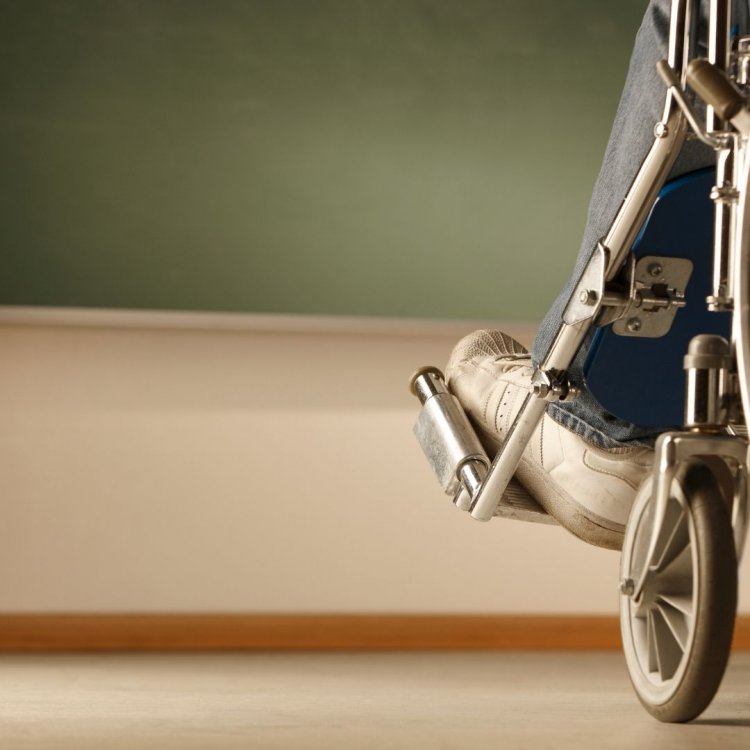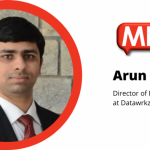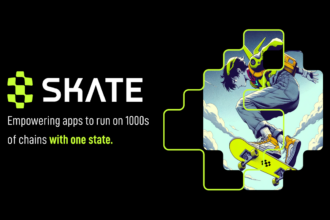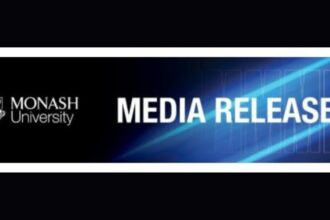What happens when a sports-mad CEO joins a small NGO disability charity? A tech upgrade for its remote support “coaches”, for a start.
The charity sector isn’t exactly known for its cutting-edge tech, but Wallara isn’t your average charity.
“We’ve invested a lot in our digital side,” says CEO Phil Hayes-Brown. “When I came here our IT was pretty sub-standard, as charities often face, and we were apologising about our tools. I wanted to make our IT something to be proud of, something that would become one of our calling cards, not one of our apologies.”
Technology to be proud of has been a game-changer for a company that aims to normalise intellectual disability.
“We want to tell the stories,” says Phil, who was recently awarded Most Outstanding CEO at the 2022 Australian Disability Service Awards.
Not that he’d tell you that himself – he’s far more interested in sharing his client’s stories than his own.
“What are people with intellectual disabilities doing? How are they contributing to their societies, to their communities?” he says. “We do that physically if we can, but increasingly we reach people virtually through online Microsoft tools.”
The impact of COVID meant that Wallara accelerated their daily operations using Microsoft Teams. It’s a change that has helped staff across more than 30 locations to connect and collaborate – and brought their teams together in a way Phil couldn’t have predicted.
“To have all of Wallara staff dial in and see their faces on the screen, and have a chat with them about what’s happening – [the change] has been remarkable,” he says.
Being able to deliver online sessions to people living with disabilities and their families has also proved to be a game-changer, as Phil explains in the Empowering Possibilities: Modernising Your Business Masterclass on Kochie’s Business Builders.
“For a lot of people with disabilities, communication is really difficult so the family members are looking for more connection and engagement,” Phil says in the webinar. “If we can close that gap, and technology is the best way to close that gap, it’s really empowering. For example, we teach independent living skills – so you learn how to do washing and ironing and other things. There’s a real knowledge loss when people leave a generic facility and go home to their own laundry. But if you deliver that by video into their own home with their own machine, it really lets you customise and tailor things to the individual.”
For Windows users like Wallara, the opportunities are even more promising with the latest Windows 11 Pro devices powered by the Intel vPro® platform. Windows 11 has improved its inclusive design and new assistive technology features enhance accessibility for all.
The importance of connection and collaboration
For Phil, the ability to still have “watercooler conversations” remotely, not just have meetings back to back, was just as important. “You’ve got to be able to contact people and just say ‘how are you doing?’ as opposed to scheduled meetings all the time,” he notes. “It has released us in a way.”
Wallara has always been about connection and collaboration – coming together to support people living with different abilities. Phil’s daughter Phoebe is a client of Wallara as she is non-verbal and lives with an intellectual disability. She was Phil’s introduction to the world of disability.
“I remember thinking, ‘I have no idea what adults with disabilities do,” he says. “I started working at Wallara and I still had no idea, but I knew they did important work and I didn’t want to mess it up.”
That important work involves Wallara’s three main service streams – housing (they operate eight supported-living houses in south-east Melbourne to accommodate up to 42 people), community access and education (they offer in-person and online training), and paid work in logistics, horticulture and hospitality. One of their biggest supported work opportunities is at their logistics warehouse, where around 140 employees are responsible for sorting, packing and shipping for clients like Myer and even distributing COVID air purifiers to Victorian Schools.
Students in one of Wallara’s onsite computer classes. Image source: Supplied by Wallara.
Support coaches bring out the best
Phil came to Wallara after years in the sports industry – he’s worked at both Hawthorn Football Club and was the managing director for Asia Pacific at the National Basketball Association for 12 years. Little wonder then that disability support workers at Wallara are called support coaches and the team are the playing group.
“I didn’t think the title [disability support worker] was reflective of the importance of the work, so we changed it to support coach” says Phil. “We’ve got 500 athletes, 500 players who want to be the best they can be and about 200 support coaches who are working with them on a daily basis to help them get there. It’s pretty much what we do.”
The power of digital outreach
Their latest tool to make that happen is Wallara Online, which they launched during COVID in an effort to keep their clients connected and learning. A live coach runs each class and clients can sign up for training in everything from life skills, social skills and literacy, to job-related learning in technology, horticulture, retail and hospitality. The program recently won Most Outstanding Remote Service Program at the Disability Service Awards.
“We’ve realised the power of digital outreach,” says Phil. “You don’t need to live in Dandenong [to access our services], you could be anywhere. So we now have clients from across Australia starting up with us.”
Overall, Phil is genuinely amazed at the work being done every day by a lot of great people. “Good news stories are hard to tell,” he acknowledges. “But when people are brought together with purpose, they can achieve amazing things. No matter where they start from.”



